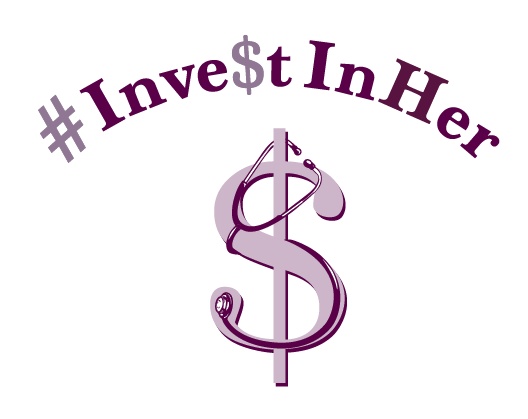#InvestInHer

What is the #InvestInHer campaign?
The
#InvestInHer campaign is a call to action for hospitals, health care institutions, government agencies, foundations, professional societies and health-related companies to financially invest in:
- Recruiting women in medicine at all levels,
especially promoting them to the highest leadership
positions
- Retaining women in health care and providing
them with the resources they need to succeed at
work and in their personal lives
- Re-entry support for women who have left
medicine due to rearing children, caring for
aging parents, burnout or other reasons
Every year, the course Career Advancement and Leadership Skills for Women in Healthcare launches a new strategic initiative aimed at supporting women in health care. Once again, ELAM and the American Medical Women’s Association (AMWA) are partnering in this campaign.
Read more about the #InvestInHer campaign
Why is this campaign
important now?
Women make up the majority of the
health care workforce in the United States
and many other countries. This means
that the prevention, diagnosis and treatment
of disease as well as the care of patients
largely falls on the shoulders of women.
Women also comprise a large proportion
of researchers; thus, the advancement of
science is dependent upon them.
Despite
society’s reliance on the intellect, care
and compassion of women in medicine,
they are often not valued, respected or
treated equally with men. The #InvestInHer
campaign aims to highlight the urgent need
to value women in medicine, which will have a net positive effect on the
health of all.
Why Is This Support Needed Urgently?
The past few years have created a syndemic
that is disproportionately affecting women
in medicine, causing some to reduce their
work hours or leave health care altogether.
A syndemic occurs when two or more
health-related issues — such as the COVID-19
pandemic, racial inequities and the opioid
crisis — collectively create a situation that
has a more profound negative impact than
any one issue would alone. These factors,
together with a global increase in mental
health symptoms and deterioration of
many people’s physical health from their
baseline, have put an unprecedented strain
on healthcare workers.
The “Great Resignation”
has exacerbated current and future
shortages of physicians, nurses, staff and
other workers who are needed to power this large industry. Women in medicine face
many documented challenges including, but not
limited to, inequitable pay and promotion and
insufficient resources dedicated to mentoring
and sponsorship. Importantly, women who
identify with racial or ethnic minority groups or
as LGBTQ, and those have a disability, often face greater
barriers as they navigate their careers.
These findings are deeply troubling. And yet,
women in medicine can be a key part of the
solution. Urgent strategic investments are needed
to recruit women into medicine at the beginning
of the pipeline and to promote them to top
leadership positions. It is essential to retain
women in medicine throughout their careers by
valuing their work and ensuring equitable
policies. For those who have left clinical
medicine and are inclined to return,
there is a need to expeditiously expand
pathways, training, and other support to
help them re-enter.